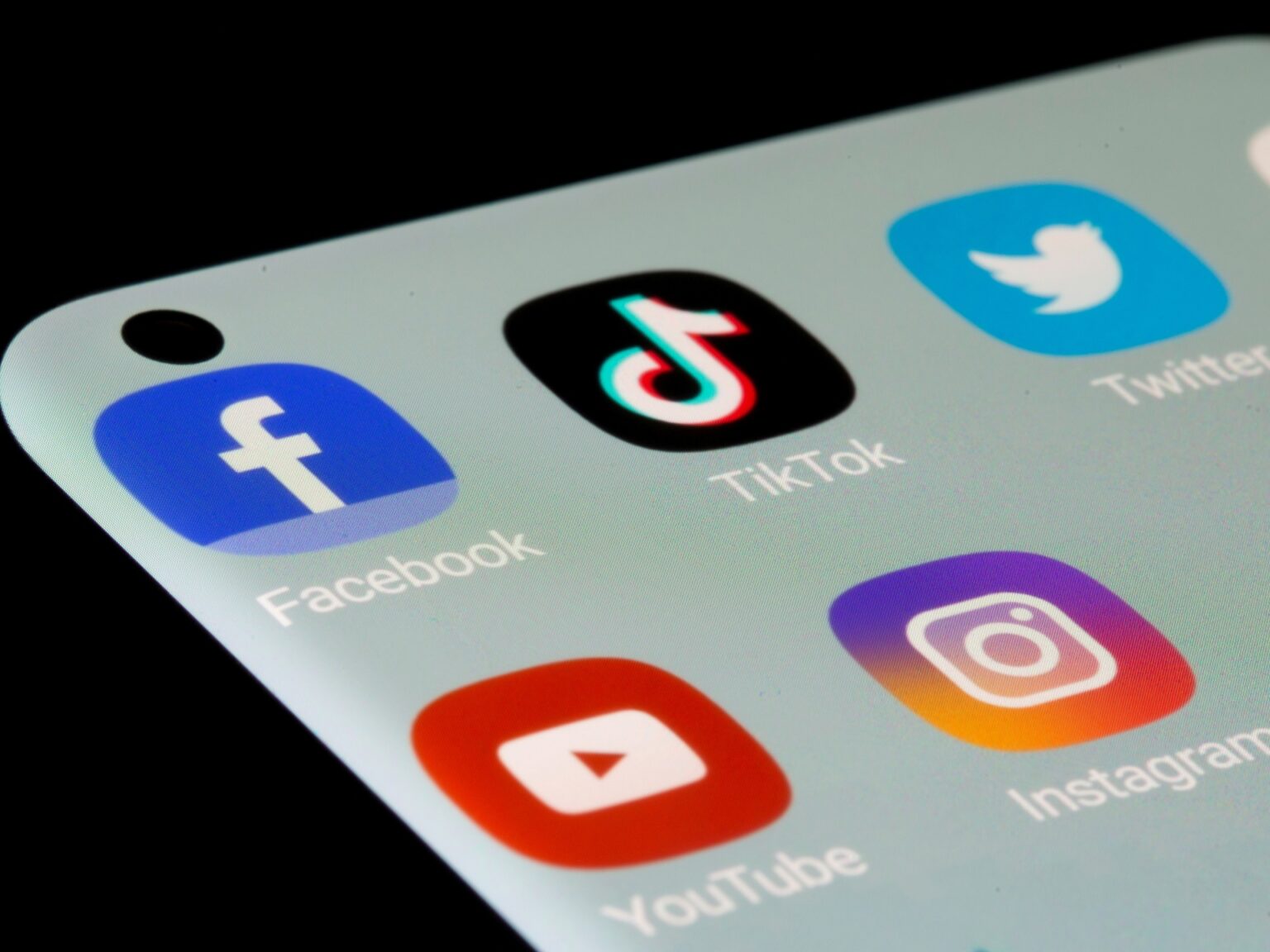Washington, DC – The United States surgeon general has warned that social media can have a “profound risk of harm to the mental health and well-being of children”, calling for more regulations and research on minors’ use of internet platforms.
In a report released on Tuesday, Vivek Murthy – who acts as the top government spokesperson on public health and is known as the nation’s doctor – drew on existing research to outline social media’s effects on children.
The advisory highlighted potential harms to children and teens from social media use, including sleep deprivation, mental health issues, cyberbullying, access to extreme content and being susceptible to predatory behaviour from adults.
“Excessive and problematic social media use, such as compulsive or uncontrollable use, has been linked to sleep problems, attention problems, and feelings of exclusion among adolescents,” Murthy wrote.
The report explained that children and teenagers are especially vulnerable to the impact of social media because they are undergoing a “highly sensitive period of brain development”.
NEW: Today, I released a Surgeon General’s Advisory on Social Media and #YouthMentalHealth. This is the next step in our office’s work to address our youth mental health crisis. https://t.co/6JadYlxORy 1/7 pic.twitter.com/UrHNP1Uq15
— Dr. Vivek Murthy, U.S. Surgeon General (@Surgeon_General) May 23, 2023
The advisory comes amid growing concerns about the prevalence of social media use among children with government officials struggling to set guidelines.
Earlier this year, Utah passed laws that would require parental consent for minors to join social media platforms and block children’s access to the websites between 10:30pm and 6:30am. The regulations will go into effect next year, but questions have remained on how they will be enforced.
In Tuesday’s advisory, Murthy stressed that the lack of research was a challenge to understanding the issue.
“Nearly every teenager in America uses social media, and yet we do not have enough evidence to conclude that it is sufficiently safe for them,” the report read. “Our children have become unknowing participants in a decades-long experiment.”
It added that it is critical for independent researchers and technology firms to work together to “advance our understanding of the impact of social media on children”.
Despite the concern, Murthy noted that social media can have potential benefits for children, including exposing them to others who share their identities and experiences and enabling them to form friendships and have positive interactions online.
But he underscored that social media platforms enticed users to spend more time on their websites through push notifications, infinite scroll, “likes” and content recommendations.
“Social media platforms are often designed to maximize user engagement, which has the potential to encourage excessive use and behavioral dysregulation,” the advisory read.
The report also warned of accessible “extreme, inappropriate, and harmful content” that could lead children to risk-taking and self-harm.
Viral “challenges” on social media often dare users to engage in unconventional and sometimes dangerous behaviour. Last month, a 13-year-old boy in Ohio died of an overdose on allergy medication while trying to copy a TikTok challenge.
“Social media may also perpetuate body dissatisfaction, disordered eating behaviors, social comparison, and low self-esteem, especially among adolescent girls,” Murthy said in his advisory.
The surgeon general issued lists of recommendations for policymakers, researchers, social media companies, parents and children, calling for a “safety-first” approach to protect consumers. He urged implementing age-appropriate health and safety standards for children.
“Such standards may include designing technology that is appropriate and safe for a child’s developmental stage; protecting children and adolescents from accessing harmful content (e.g., content that encourages eating disorders, violence, substance abuse, sexual exploitation, and suicide or discusses suicide means),” the report said.
It also called for “limiting the use of features that attempt to maximize time, attention, and engagement” and creating tools that “protect activities that are essential for healthy development like sleep”.
For parents, Murthy suggested creating a family plan to set boundaries on social media use and establishing tech-free zones to foster in-person interactions. The surgeon general also said adults should lead by example.
“Parents can set a good example of what responsible and healthy social media use looks like by limiting their own use, being mindful of social media habits (including when and how parents share information or content about their child), and modeling positive behavior on your social media accounts,” the advisory said.


